GOODSPEED MUSICALS STUDENT GUIDE




Book by JOSEPH ROBINETTE











Book by JOSEPH ROBINETTE






Age Rating: G | Run Time: Approx. 2.5 hours (including intermission)
Goodspeed unwraps a glittering musical version of the beloved movie classic just in time for the holidays.
The only thing little Ralphie wants for Christmas is a BB gun. But to get it, he must navigate all the obstacles of the yuletide season. Will a neighborhood bully, a strict school teacher, a distracted dad and a department store Santa thwart his quest? There’s something for everyone in this hilarious love letter to Christmas past. A package of naughty and nice nostalgia to warm your winter!
Based on the motion picture A Christmas Story distributed by Warner Bros., written by Jean Shepherd, Leigh Brown and Bob Clark, and upon In God We Trust: All Others Pay Cash written by Jean Shepherd.

Christopher Riley, Camilo Velasquez Escamilla, Jenn Gambatese and Jim Stanek
The show starts out in a radio studio with a radio announcer, Jean Shepherd. He introduces himself and the audience to a Christmas story which takes place in 1940 in Hohman, Indiana. It is about a boy named Ralphie Parker, his family and friends, and his one Christmas wish: to get a Red Ryder BB Gun.
All of the adults are against Ralphie getting such a dangerous gift and insist that he’ll shoot his eye out!
The chaos of the holiday season ensues: the neighbors’ dogs disrupt The Old Man Parker’s peace, Ralphie deals with bullies, and Mother Parker tries to keep her household running smoothly with a difference of opinions during a hectic time of year!
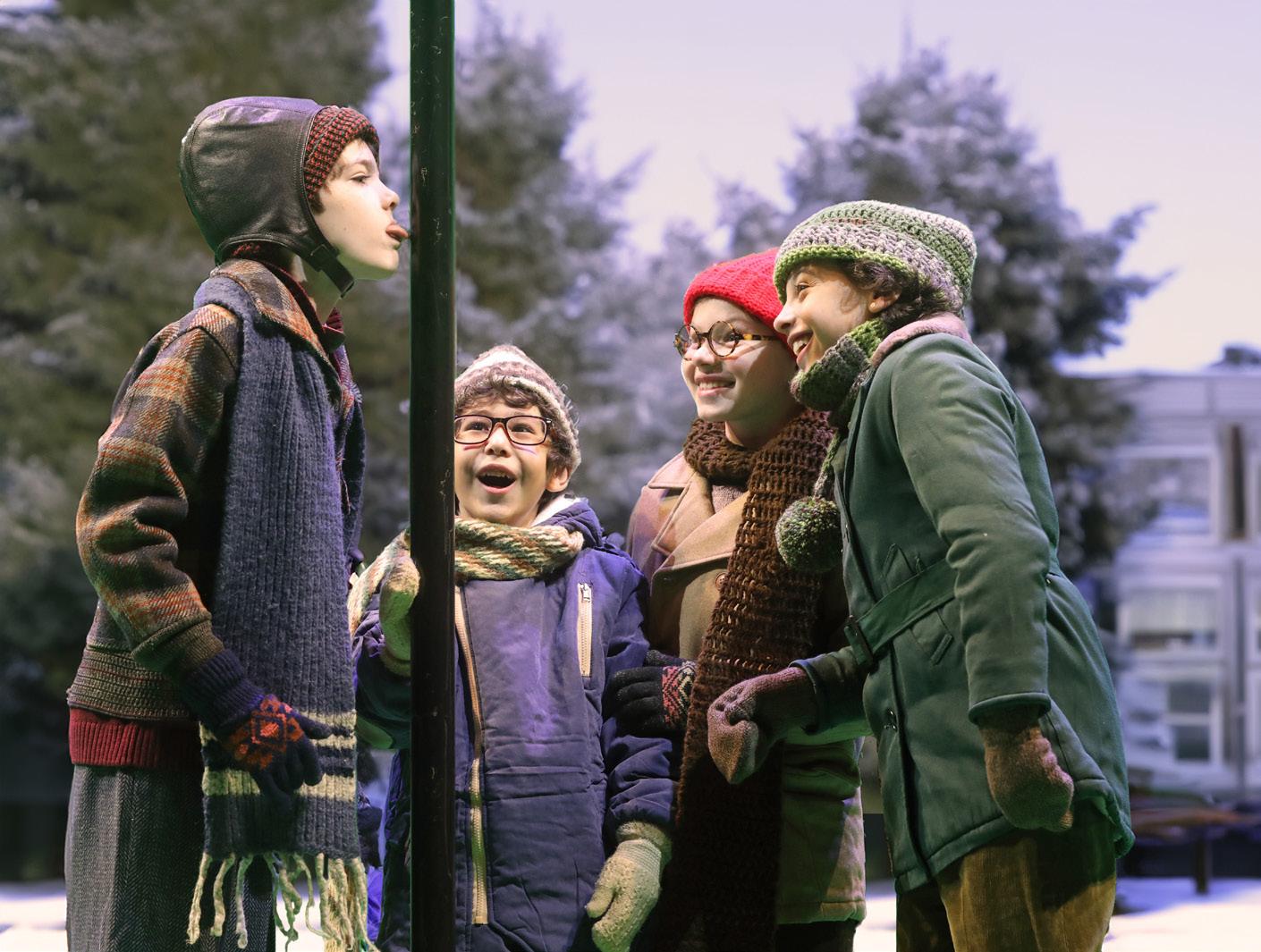
Oliver Logue, Camilo Velasquez
Escamilla, Christopher Riley, and Gabriel Lafazan
Jean Shepherd ....................................................................................................... JOHN SCHERER
A radio show host sharing a Christmas story in the first-person narrative.
Ralphie Parker ...............................................................................................CHRISTOPHER RILEY
The main character of the story. A young boy who wants a BB gun for Christmas.
Randy Parker ............................................................................ CAMILO VELASQUEZ ESCAMILLA
Ralphie's younger brother.
Mother JENN GAMBATESE
Ralphie's mother.
The Old Man ................................................................................................................. JIM STANEK
Ralphie's distracted father.
Miss Shields ....................................................................................................... RASHIDRA SCOTT
Ralphie's strict teacher.
Schwartz ........................................................................................................... GABRIEL LAFAZAN
Ralphie's best friend.
Flick ...........................................................................................................................OLIVER LOGUE
Ralphie's best friend.
Scut Farkus ................................................................................................................... JACK CASEY A school bully.
Grover Dill ................................................................................................................ ZEKE BERNIER A school bully.
Ensemble JENNIELLEN BEATTIE
Ensemble ...................................................................................................................
Ensemble
Ensemble ..........................................................................................................
Ensemble .................................................................................................... THOMAS GOLDBACH V
Ensemble ................................................................................................................... LAURA GULEY
Ensemble TRESTON J. HENDERSON
Ensemble ................................................................................................................ GAVIN HOLWITT
Ensemble ................................................................................................................. ADDIE JAYMES
Ensemble ..................................................................................................................... IAN KNAUER
Ensemble .......................................................................................................................... IZZY PIKE
Ensemble JESSE SWIMM



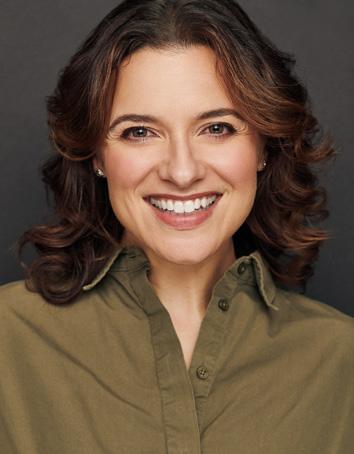










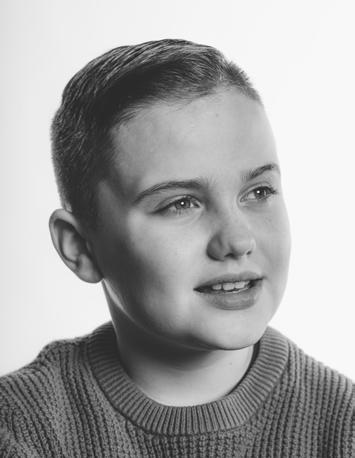


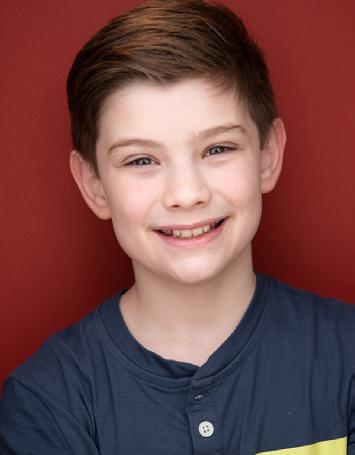







GUS (Bumpus Hound) is a standard poodle mix adopted by trainer and guardian Bill Berloni from Carolina Poodle Rescue in 2022. He has been training to play the role of "Winn Dixie" in the new musical Because of Winn Dixie. In 2022 he appeared in the Lifetime movie 12 Days of Christmas Eve starring Kelsey Grammer. This production marks his theatrical debut.

JETHRO (Bumpus Hound) is a hound mix who was adopted by trainer and guardian Bill Berloni from My Young and Old Fur Babies in 2021. He was a stray that was found running loose in the deep woods of North Carolina and rescued by hikers. Jethro made his theatrical debut as a Bumpus Hound in the National Tour of A Christmas Story in 2021. He recreated his role at the Ahmanson Theater in Los Angeles in 2023. Jethro appeared in the acclaimed production of The Hunt at St. Ann's Warehouse in Brooklyn NY earlier this year.
Music & Lyrics by Benj Pasek & Justin Paul
Book by Joseph Robinette
Music Direction by Andrew Smithson
Music Supervison by Adam Souza
Choreographed by Mara Newbery Greer
Directed by Hunter Foster
Scenic Design by David Arsenault
Costume Design by Nicole V. Moody
Lighting Design by Christopher Wong
Sound Design by Jay Hilton
Hair, Wig & Makeup Design by J. Jared Janas

Adaptation: The act of taking an existing work and reinventing it for a different artistic medium. It is a process that takes as much thoughtful work as creating a completely new story.
• When adapting a story into a different artistic medium, artists and writers choose the medium based on themes in the story that they believe to be the most important.
• Break up into small groups and discuss adaptations that are popular in our culture today. Be ready to share one example with the class. An example of adaptation work is the Marvel Cinematic Universe. These movies were adapted from comic books.
Here are some other examples of musicals that have been adapted from famous movies or television programs:




NAME:
SCHOOL:
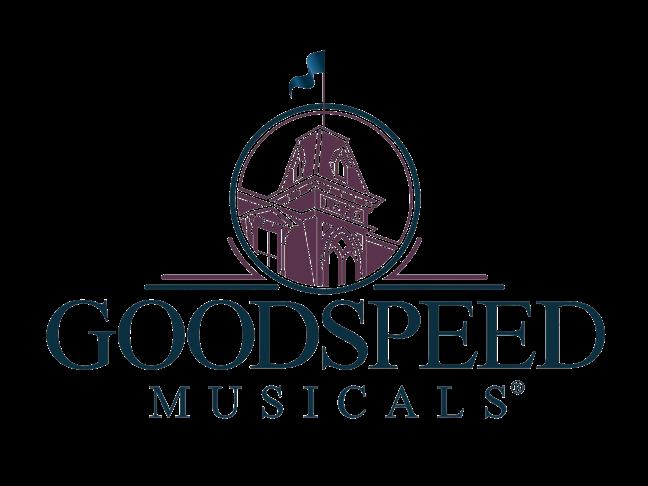
Title of Holiday movie you are adapting: __________________________________
Why did you choose to adapt this movie into a musical?
What are some themes of this movie you would like to see portrayed in the musical version?
Plot Point #1:
Tempo and style of music:
What type of dance style will accompany the tempo of your song? Will it be a large dance number or a small dance number?
Title of your song:
Plot Point #2:
Tempo and style of music:
What type of dance style will accompany the tempo of your song? Will it be a large dance number or a small dance number?
Title of your song:
Title of Holiday movie you are adapting:
Home Alone
Why did you choose to adapt this movie into a musical?
I chose Home Alone as my musical adaptation because this movie is one of my absolute favorite Holiday films. This movie is funny, entertaining, and is a Holiday movie classic that is popular throughout many different generations.
What are some themes of this movie you would like to see portrayed in the musical version?

Themes I would like to see portrayed throughout Home Alone: The Musical: Family, friendship, feeling alone, standing up for yourself, helping those in need.
Plot Point #1:
• Kevin wakes up Christmas morning to find out his Christmas wish came true! His family has disappeared and he is home alone for Christmas.
• This musical number will be a solo for Kevin. Since Kevin is happy that his family is gone the tempo of the music will be upbeat, loud, and very fast.
• This musical number will have a lot of jazz dancing from Kevin that will involve him executing many acrobatic tricks to show how happy he is.
Title of your song: Finally Alone!
actor: a person who performs a character.
act: a major unit or division of a play.
action: the movement or development of the plot or story in a play; the sense of forward movement created by the sense of time and/or the physical and psychological motivations of characters.
antagonist: the opponent or adversary of the hero or main character of a drama; one who opposes and actively competes with another character in a play, most often with the protagonist.
apron: the area between the front curtain and the edge of the stage.
audition: a tryout for a part in a drama; also, the act of trying out.
backstage: the area behind or beyond the stage that includes dressing rooms and wings.
blocking: the path formed by the actor’s movement on stage, usually determined by the director with assistance from the actor and often written down in a script using commonly accepted theatrical symbols.
book: the script of a play.
callback: a second audition.
cast: the group of people selected to portray characters in a show.
choreography: the movement of actors and dancers to music in a play.
cue: the words or action at which an actor is expected to deliver a line or perform another action. Also, a signal from the stage manager to the cast, stage crew, props manager, or lighting technician that a predetermined action—an entrance, sound effect, change in the set or lighting—is required.
designers: persons responsible for planning visual and sound aspects of a production, including costumes, set, props, lights, makeup, and sound.
director: the person who is responsible for the overall interpretation of a dramatic work, bringing all the elements together to create a unified production.
ensemble: the dynamic interaction and harmonious blending of the efforts of the many artists involved in the dramatic activity of theatrical production. front of house: box office and lobby of a theater.
front of house: box office and lobby of a theater.
intermission: a brief break between acts, in which the house lights come on and the audience may leave their seats.
lines: the dialogue of a play; the words actors say in performance.
musical: a play in which the story is told through a combination of spoken dialogue and musical numbers.
producer: the person who puts together a theatrical production, obtaining the financing, hiring the director and other stage personnel, supervising the budget, leasing rights and space, etc.
props: short for properties; any article, except costume or scenery, used as part of a dramatic production; any moveable object that appears on stage during a performance, from a telephone to a train.
protagonist: the main character or hero in a play or other literary work. understudies: actors who are able to play major roles in the event the originally cast actors cannot.
scenery: the theatrical equipment, such as curtains, flats, backdrops, or platforms, used in a production to communicate the environment.
Seeing a musical at The Goodspeed is a unique and exciting experience. All the members of the production, both cast and crew, work hard to give you a great show. As an audience member, you also have an important job. You must help the performers give their best performance possible. You can do this by practicing these rules of theater etiquette:
• Respect the work of the actors on stage.
• DO laugh when the performance is funny.
• DO applaud when the performance is over. Applause is how you say “thank you” to the performer. The actors will bow as you applaud. That is how they say “Thank you for coming.”
• DO stand and applaud if you thought the show was outstanding.
• DON'T forget to turn off your cell phone. A ringing or buzzing phone can be very distracting. It can also be embarrassing for you if it is your phone that is disrupting the show!
• DON'T text during the performance.
• Make sure to visit the restroom before the production begins.
• DON'T speak or whisper during the performance. Whispering is still speaking, so only in an emergency should whispering occur.
• Remember that the overture (introductory music) in musical theatre is part of the performance, so remain silent when the show begins.
• DON'T take pictures during the performance. It can be very distracting to the actors and it can result in an accident.
• DON'T put your feet up on the seats or kick the seat in front of you.
• DO sit ONLY when your seat is in the folded down position.
• DO remain in your seat for the entire performance. If you must leave, exit during intermission.
• In an emergency, calmly walk toward the nearest exit.
“A Christmas Story” Warner Bros. Entertainment Inc., (November 18, 1983). https://www.warnerbros.com/movies/christmas-story
“In God We Trust All Others Pay Cash”. Jean Shepherd, (Apr 28, 1991). https://www.penguinrandomhouse.com/books/165721/in-god-we-trust-by-jean-shepherd/